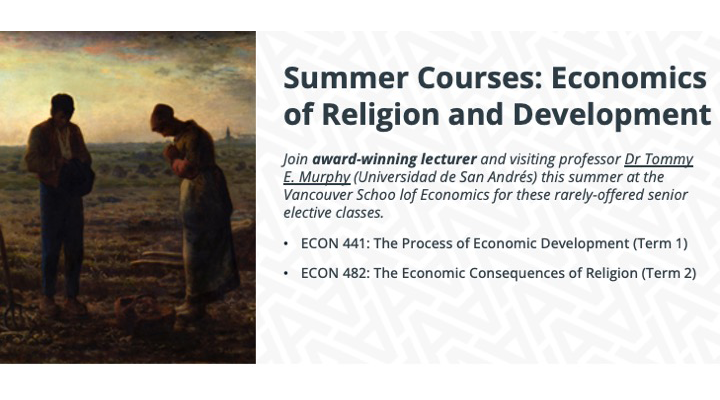Economists at UBC’s Vancouver School of Economics and Sauder School of Business, along with colleagues from Simon Fraser University, are calling on the provincial government to address housing affordability in the Lower Mainland with a tax targeting property owners without ties to the local economy.
The group, led by real estate economists Joshua Gottlieb, Thomas Davidoff, and Tsur Somerville, is recommending that the provincial government create a B.C. Housing Affordability Fund (BCHAF). Local residents would receive money raised through an annual surcharge on owners of vacant properties and owners who are not Canadian taxpayers.
“The goal is to support those living in parts of the province that have seen skyrocketing real estate prices, while also making our local markets less attractive to investors who wish to avoid taxation or park cash,” said Davidoff.
The economists propose funding the BCHAF with an annual 1.5-per-cent surcharge targeting owners of vacant properties or those with limited participation in the Canadian economy. For example, the owner of a vacant $10-million home would face a $150,000 BCHAF contribution each year.
Most homeowners and landlords would be exempt from the surcharge. As an incentive to move unoccupied suites into the rental market, the policy also allows for owners to receive exemptions for rental income they receive from non-family members reported to the Canada Revenue Agency.
The report has garnered significant attention since being publicized, including from senior government officials. Regarding the next phase of the proposal’s roll-out and the housing fund initiative, Gottlieb indicates, “Our plan has been well-received. It’s a simple application of economic principles, easy to implement, and a political winner. So I’m optimistic that policymakers will see the advantages of our proposal and implement it quickly.”
The economists suggest a localized approach that allows each municipality within the province to choose whether to implement the BCHAF. Funds raised from absentee owners within a particular jurisdiction would go directly to all taxpayers who declare residency within the same locale – including property owners and renters – in the form of equal lump sum payments.
Based solely on the current vacancy data, the researchers estimate the BCHAF would raise a minimum $90 million per year in Vancouver alone.
“We are certain the sum would actually be much higher as current systems for data collection don’t provide a full picture of vacancy rates,” said Davidoff. “An added bonus of the BCHAF reporting process is that it will help us gain a much more accurate picture of the problems of homes left vacant and property owners who do not or have not paid their share of Canadian taxes.”
For a full version of the “Policy Proposal: B.C. Housing Affordability Fund,” including the full list of signatories, please visit www.housingaffordability.org. For an FAQ on the fund, please click here.



